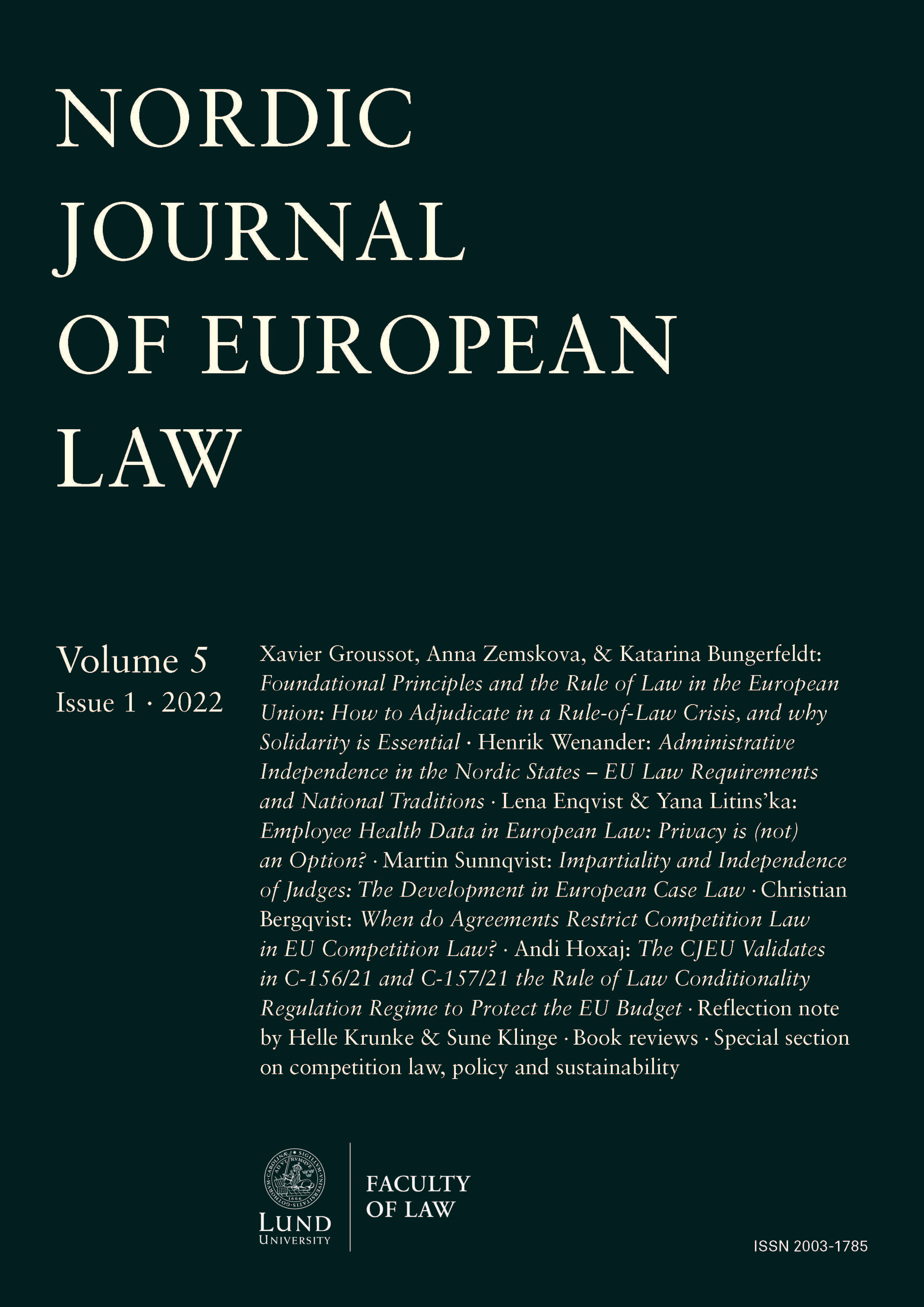Foundational Principles and the Rule of Law in the European Union How to Adjudicate in a Rule-of-Law Crisis, and why Solidarity Is Essential
Main Article Content
Abstract
In the seminal cases C-156/21 and C-157/21 (‘Budget Conditionality Cases’) the Court of Justice of the European Union demonstrated a shift in the perception of the operational functionality of foundational values of the EU, establishing that the rule of law is a founding value of the Union which represents a legal norm and imposes an obligation on the Member States to comply with its constituent elements. Such an interpretation of the CJEU, however, raises a few questions about the possibility of adjudicating the foundational values enshrined in Article 2 TEU and their extended role in the EU constitutional framework. Given the latest developments in the Court’s case law, can all the foundational values under Article 2 TEU then acquire the status of legal norms and become ‘foundational’ or ‘founding’ principles? Does the attainment of this status happen automatically, or does a value need to fulfil specific criteria in order to obtain the necessary normativity, that would in turn make it enforceable? And how will the answer to that question affect our understanding of the role and function of the Court in EU law adjudication? In our contribution, we are going to attempt to address these very questions on the basis of four different premises. In Part I, the first premise –the possibility of the values of the EU becoming normative principles – will be discussed though theoretical and practical prisms. In Part II, the notion of ‘foundational (or ‘founding’) principles and their relation to values will be explicated in light of the Budget Conditionality Cases and as EU principles of the highest constitutional rank. In Part III, and still in light of the Budget Conditionality Cases, the principle of solidarity will be analysed and presented as a foundational and legal principle of EU law. In Part IV, the idea of the CJEU as a ‘deontic’ Court will be outlined and then challenged on its grounds. This will be followed by some concluding remarks.
Article Details

This work is licensed under a Creative Commons Attribution-NonCommercial-NoDerivatives 4.0 International License.

